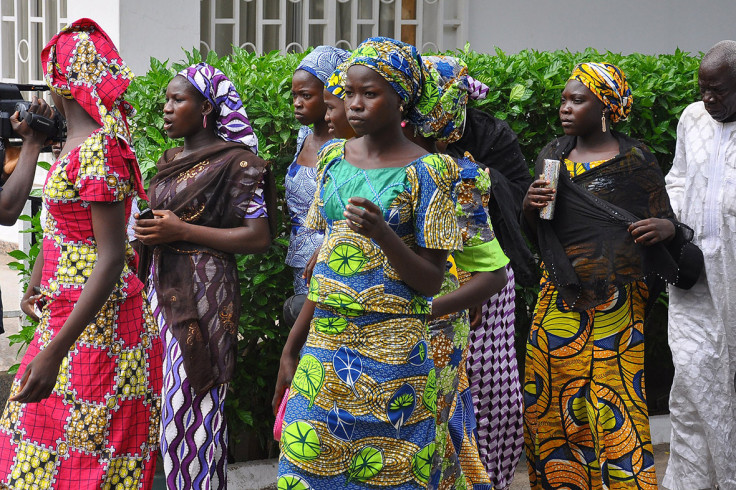Boko Haram: Nigeria urged to ease abortion laws for girls raped by terrorists

The UN has urged Nigeria to ease anti-abortion laws for women and girls who became pregnant after being raped by Boko Haram terrorists.
It is estimated that Boko Haram, renowned for kidnapping women and girls and forcing them to participate in attacks and marry their abductors, has raped at least 12,000 women and girls in recent times.
The news followed a statement by the UN Population Fund warning that at least 214 girls abducted by the insurgents and freed by the Nigerian army in May were "visibly pregnant".
In April, a report by the UN warned that Boko Haram and other terror groups use rape as a weapon of war.
A UN representative said during a special session on Boko Haram held on 1 July: "During their captivity, lasting in many cases for months or even years, women and girls have been sexually enslaved, raped and forced into so-called 'marriages'.
Who are Nigeria's Boko Haram terrorists?
Boko Haram (recently renamed Iswap) fights against Western influence in Nigeria and aims to impose its version of Sharia law in the country. The group declared an Islamic caliphate in Gwoza, along the Cameroon border, in August 2014.
Boko Haram has raided several cities in the north of the country in a bid to take control of more land.
Three states − Adamawa, Borno and Yobe − have been under a state of emergency since May 2013, due to Boko Haram's attacks.
The group has killed more than 2,700 people since the beginning of 2015.
"Many survivors of these horrific experiences are now pregnant by their rapists ... and several reportedly wish to terminate these unwanted pregnancies," he continued.
"I strongly urge the most compassionate possible interpretation of the current regulations in Nigeria to include the risk of suicide and risks to mental health for women and young girls who have suffered such appalling cruelty," he said and added that former captives, often stigmatised, should be helped reintegrate in society.
Nigeria has some of the world's toughest anti-abortion laws and allows the termination of a pregnancy only if the mother's life is in danger.
Two physicians are required to certify that the fetus poses a serious threat to the mother's life.
In the predominantly Muslim states in the north, abortion laws are regulated by the penal code, which says anyone who causes a woman – or the woman herself – to miscarry risks up to 14 years in jail and a fine. Sentences are tougher if the woman dies after the abortion.
In the predominantly Christian states in the south, abortion laws are contained in the Criminal code, according to which a pregnant woman who causes her own miscarriage can be sentenced to seven years in jail. Those who cause the miscarriage of a woman whose pregnancy is not posing a risk to her health risk 14 years imprisonment.
Abortion is carried out under broader circumstances in the south. In 1938, a court acquitted a surgeon who had operated an abortion on a girl who had become pregnant as a result of sexual violence.
The Nigerian government is being aided by mercenaries and troops from neighbouring countries Chad, Benin, Niger and Cameroon in its offensive against Boko Haram and has scored some successes since the military co-operation started in February.
The US announced it would send military trainers to help the Nigerian army improve its intelligence gathering and logistics.
During a visit to Chad in June, President Muhammadu Buhari renewed his commitment to fight the group, which has killed thousands of people since its insurgence started in 2009.
Nigeria up close: Check out our Flipboard magazine
© Copyright IBTimes 2025. All rights reserved.






















